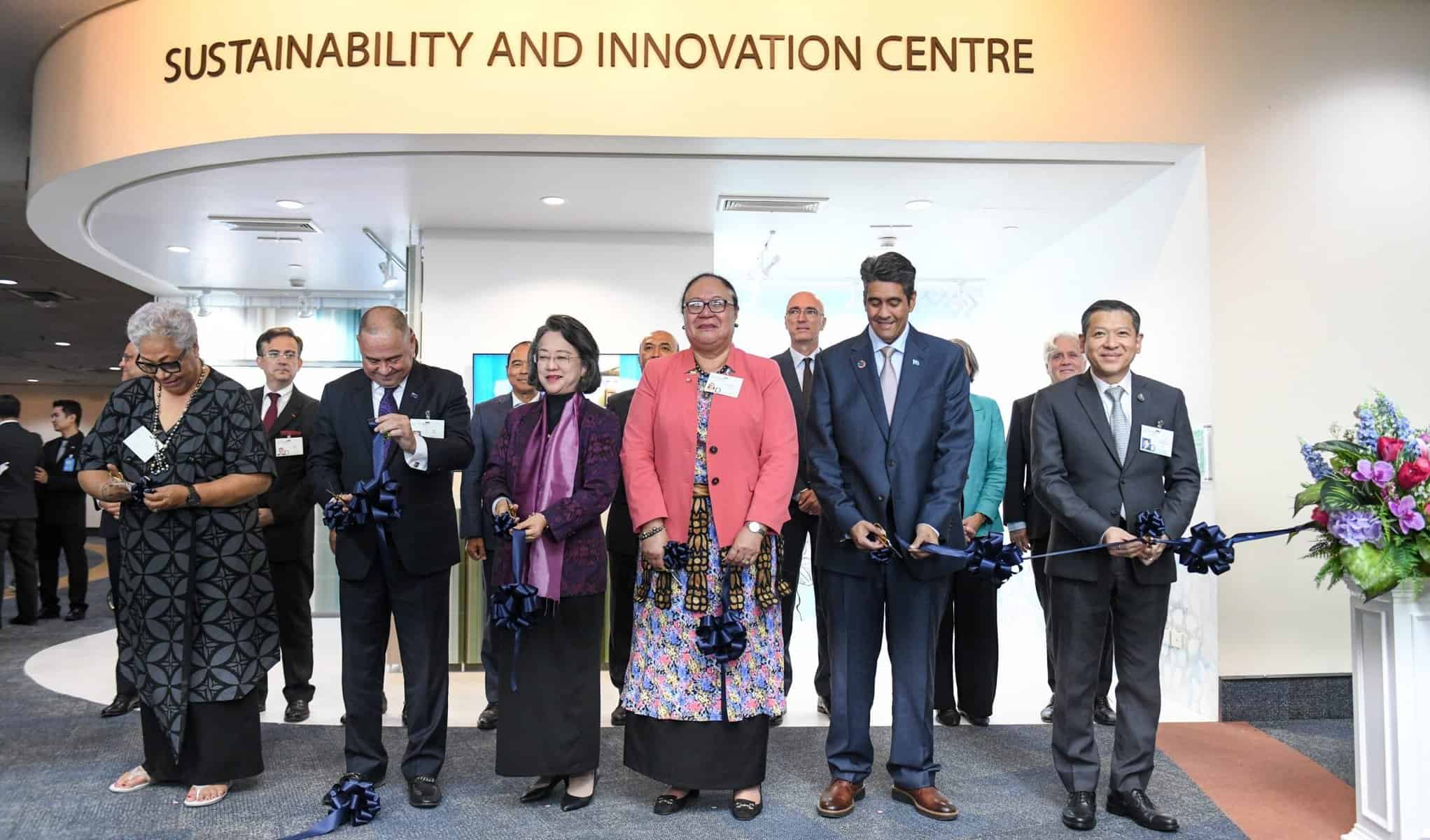Tongan Foreign Minister Fekitamoeloa Katoa ‘Utoikamanu is the new chair of the ESCAP 79th Session underway in Bangkok, Thailand this week.
In her acceptance speech, ‘Utoikamanu said the deliberations of the seventy-ninth session, guided by the theme “Accelerating climate action in Asia and the Pacific for sustainable development” are so critical for the region.
“It is an honour to Chair a session where countries not only reach an agreement on a resolution on climate action. What counts is a continued and strong commitment to remain supportive of countries in special circumstances in the region.
“This commitment, this collaboration, must deepen even further as we tackle our many challenges from the environment, to including people with disabilities, space applications, digital collaboration, disaster risk reduction, urban development, and the relationship between the ocean and climate change,” ‘Utoikamanu told leaders and delegates in Bangkok.
She said the Asia and Pacific region is known to be particularly vulnerable to the impacts of climate change.
“Temperatures continue to soar. Ocean levels continue to rise, and we know how this impacts on climate change induced extreme weather events. We also know all too well the devastating impacts on people, livelihoods and the future of our children this has. Dangers can only intensify; they will exacerbate the manifold development challenges we experience and, notably so in regard to poverty and inequalities
“As a region, we must take swift and unified measures. We must rally to both mitigate and adapt to the effects of climate change. Collaboration among nations will be essential to accelerate climate action. No single country can, alone, combat the many and complex issues of a fluctuating climate.
“This session’s results will be critical. This is especially the case for the resolution “Accelerating climate action in Asia and Pacific for Sustainable Development”
“Countries have demonstrated their willingness to cooperate and to act in unison for the wellbeing of the people in Asia and the Pacific,” ‘Utoikamanu said.
She said ESCAP, as the most inclusive intergovernmental platform in the region, can and must foster strategic cooperation for addressing the transboundary nature of climate change and for sharing best practices and technologies for mitigation and adaptation.
“For the Pacific, this is a lifeline.
“The Pacific Small Island Developing States contribute less than 0.03 percent of the world’s total greenhouse gas emissions. The very nature of their geographies, however, means they are amongst the most vulnerable to the impacts of climate change. ESCAP has been and must continue to be an important platform to advocate for regional and global action to achieve the region’s climate goals. For decades now, we from the Pacific have been making it clear how vital it is to stay within the 1.5-degree Celsius limit. Let our deliberations translate this urgency into action,” ‘Utoikamanu said.
